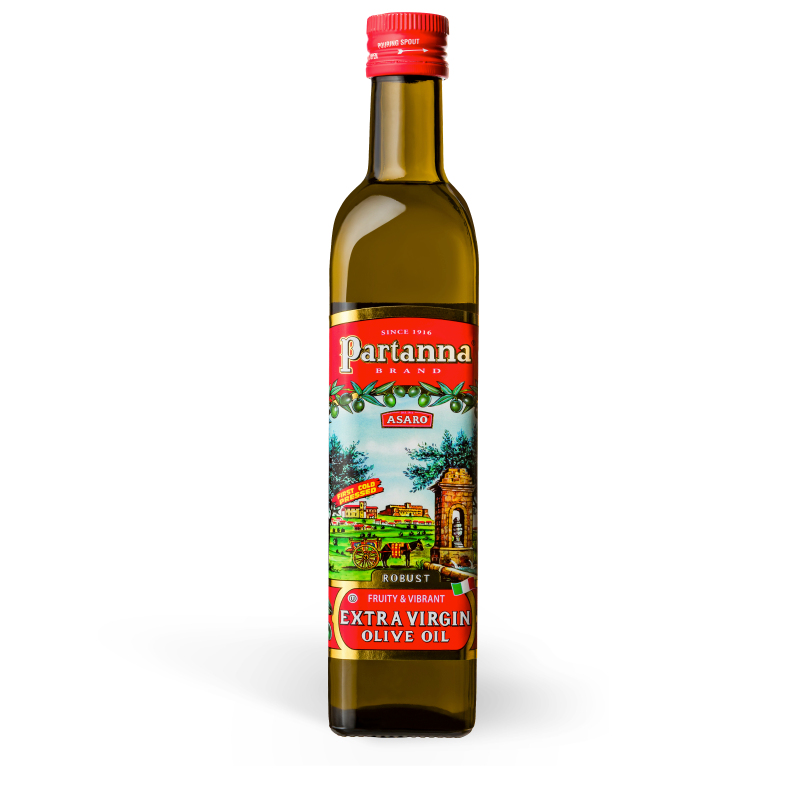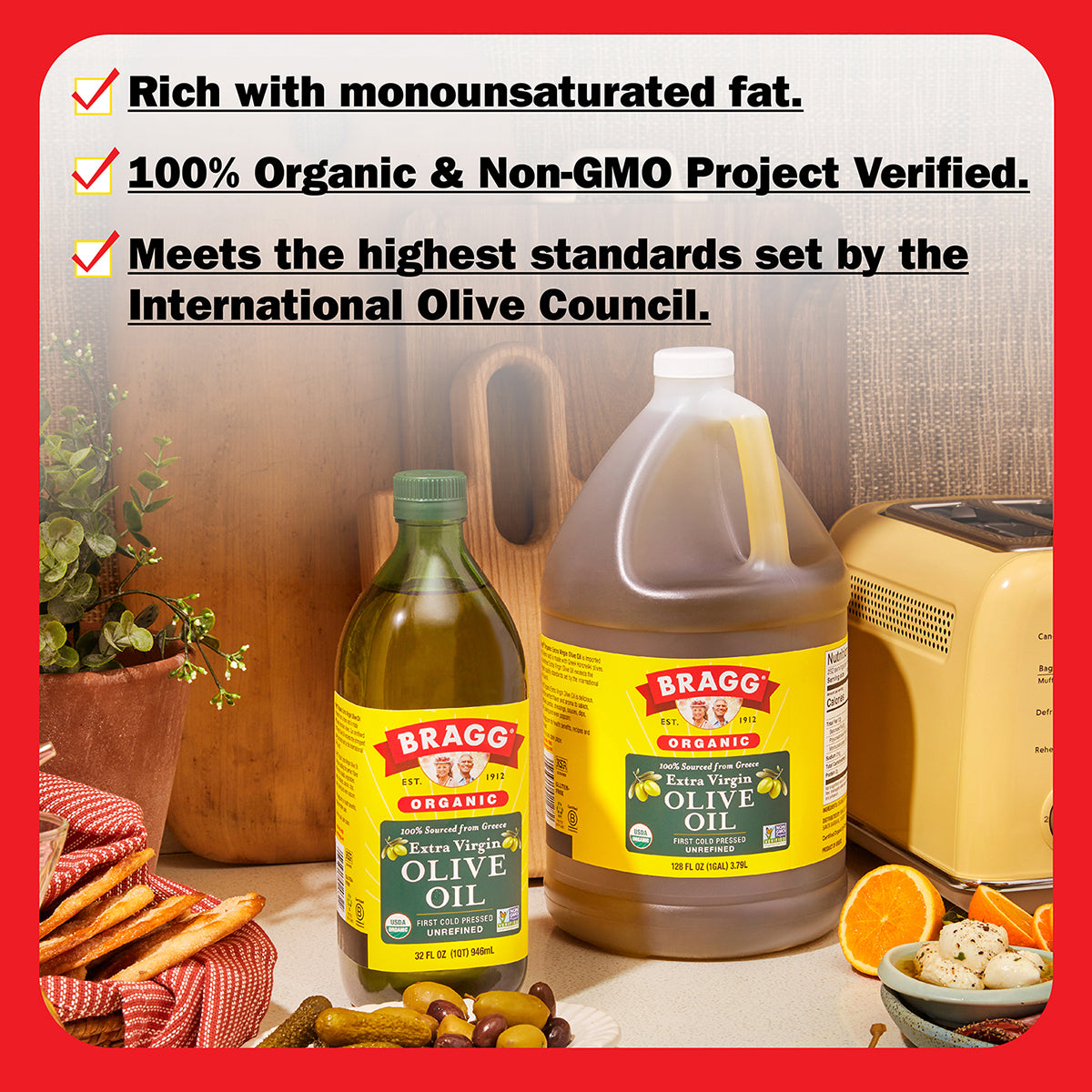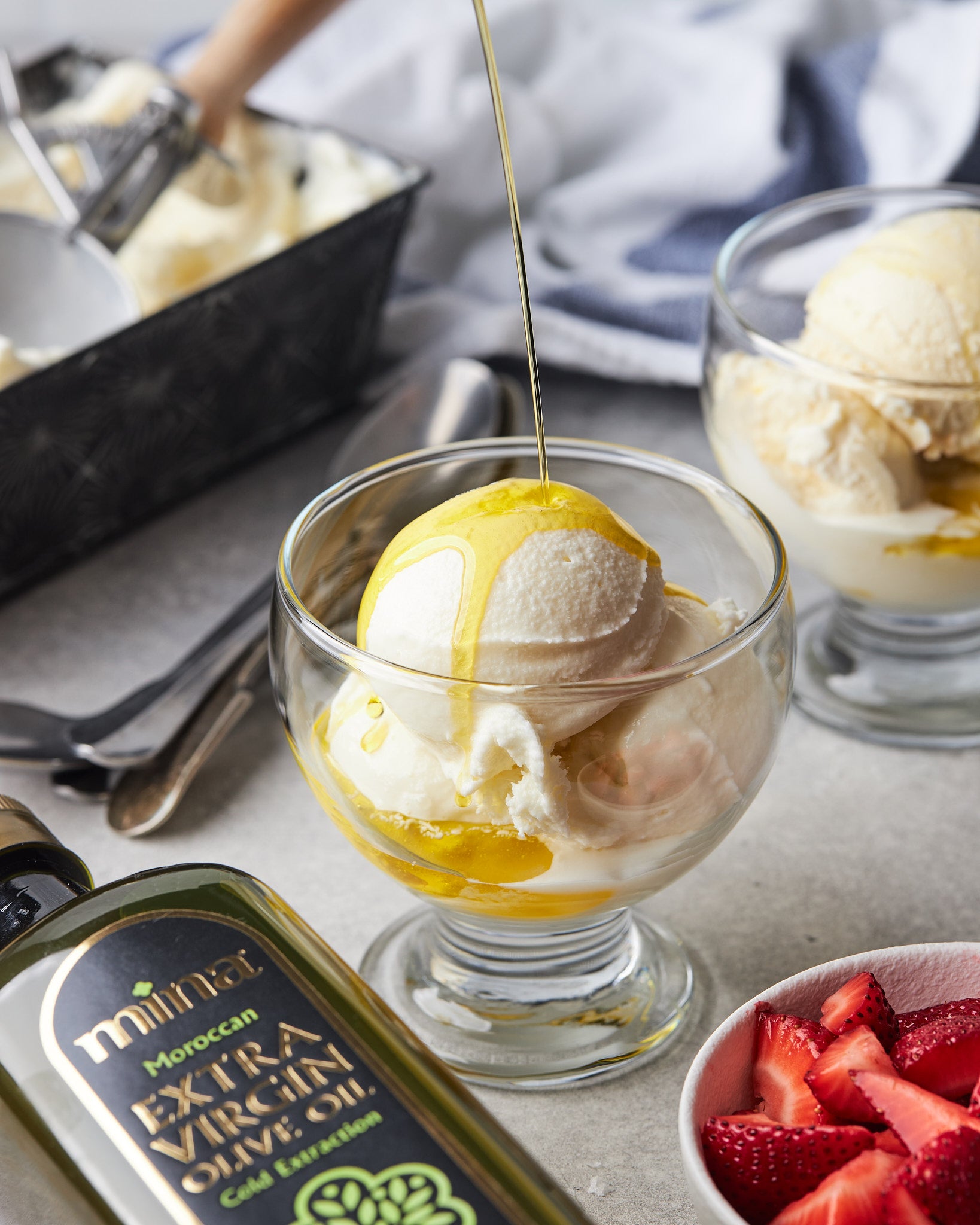Discovering the Various Kinds Of Olive Oil and Their Usages, Including Extra Virgin Olive Oil
The exploration of olive oil includes a diverse range of types, each offering distinctive tastes and culinary applications. Additional virgin olive oil, renowned for its remarkable top quality and wellness benefits, serves as a staple in several kitchens, yet it is only one aspect of this multifaceted component.
What Is Olive Oil?
Originated from the fruit of the olive tree, olive oil is a staple in Mediterranean cuisine and an essential component in numerous cooking applications. This flexible oil is created by pressing entire olives, causing a fluid that varies in taste, color, and fragrance depending on the sort of olives utilized, the region of cultivation, and the extraction procedure. Olive oil is mainly composed of monounsaturated fats, specifically oleic acid, which is recognized for its prospective health benefits, consisting of anti-inflammatory residential or commercial properties and cardiovascular support.
In enhancement to its cooking usages, olive oil has a lengthy history of application in conventional medication and skincare, owing to its abundant antioxidant material (extra virgin olive oil benefits). The oil is typically utilized in dressings, marinades, and for cooking methods such as sautéing and roasting. Its distinct taste profile can boost the preference of numerous meals, making it a vital ingredient for both home chefs and specialist chefs
Additionally, olive oil is celebrated for its duty in the Mediterranean diet, which is related to various health and wellness benefits. As understanding of these benefits grows, olive oil proceeds to obtain popularity worldwide as a fundamental element of a healthy lifestyle.
Sorts Of Olive Oil
Recognizing the different kinds of olive oil is vital for both cooking fanatics and health-conscious customers. Olive oil is classified primarily based upon its extraction method and top quality, which considerably influences its flavor, health, and fragrance benefits.

Light olive oil, regardless of its name, describes a lighter flavor and not lower calories. It is excellent for those looking for an extra refined taste in dressings and sauces. Furthermore, there are flavorful olive oils instilled with herbs, spices, or citrus, which can enhance recipes without the requirement for added spices.
Each sort of olive oil offers details culinary functions, and comprehending these differences enables customers to make enlightened options that line up with their food preparation designs and wellness objectives.
Bonus Virgin Olive Oil
Extra virgin olive oil (EVOO) is extensively considered as the finest quality olive oil readily available, renowned for its rich taste and various wellness benefits. To be categorized as additional virgin, the oil needs to be created from fresh olives making use of mechanical procedures, without making use of solvents or extreme warmth. This thorough method protects the oil's natural tastes, anti-oxidants, and healthy and balanced fats, resulting in an item with a low acidity degree of much less than 0.8%.
EVOO is bountiful in monounsaturated fats, specifically oleic acid, which is connected to lowered inflammation and improved heart health and wellness. It additionally has polyphenols, effective anti-oxidants that might provide protective results against chronic illness. The flavor account of EVOO can vary dramatically depending upon the olive range and region of production, varying from verdant and fruity to robust and sharp.

Culinary Use Olive Oil

In food preparation, olive oil can be utilized for sautéing, toasting, and barbecuing, offering a healthier choice to butter or various other fats. Its high smoke factor makes it suitable for numerous cooking techniques, while its antioxidants contribute to a heart-healthy diet regimen. Sprinkling olive oil over ended up meals, such as pasta, fish, or smoked vegetables, can elevate tastes and include a touch of elegance.
Moreover, olive oil plays a considerable function in cooking, where it can replace typical fats in dishes for bread and pastries, imparting wetness and a subtle taste. It likewise works as a base for infused oils, allowing chefs to trying out tastes such as garlic, herbs, or chili, better expanding its culinary potential. Generally, olive oil's adaptability makes it crucial in both home and specialist cooking areas.
Choosing High Quality Olive Oil
When selecting top quality olive oil, it's necessary to think about a number of crucial aspects that influence the item's health and wellness, scent, and check here flavor benefits. First and primary, go with extra virgin olive oil (EVOO), which is stemmed from the initial chilly pushing of olives and has the highest degree of anti-oxidants and advantageous substances. Seek oils that are accredited by identified companies, as this frequently makes certain adherence to rigorous quality standards.
The packaging likewise plays a substantial role in maintaining the oil's integrity. Pick oils saved in dark glass bottles or tins to shield against light deterioration. Pay attention to the harvest day; fresher oils supply premium flavor and nutritional worth, so choose products that are within 18 months of their harvest.
Be aware of the taste; a great quality olive oil need to have a balance of fruity, bitter, and peppery notes, indicating its richness and complexity. By reviewing these aspects, you can guarantee you are selecting the ideal olive oil for your cooking needs.
Final Thought
In summary, the expedition of numerous kinds of olive you could try here oil reveals unique characteristics and applications, with additional virgin olive oil standing for the pinnacle of high quality because of its reduced acidity and high antioxidant content. Its adaptability in culinary usages boosts flavors in dressings, sauces, and showers. Understanding the different varieties of olive oil enables notified options in food preparation techniques, promoting healthier methods while enhancing the total gastronomic experience. Quality option stays vital for optimal benefits.
Obtained from the fruit of the olive tree, olive oil is a staple in Mediterranean cuisine and a key active ingredient in different culinary applications.The most common types of olive oil consist of fine-tuned olive oil, pure olive oil, and light olive oil.Extra virgin olive oil (EVOO) is widely concerned as the highest possible quality olive oil offered, popular for its rich flavor and various wellness benefits. Choose visit site for extra virgin olive oil (EVOO), which is acquired from the initial cool pushing of olives and has the greatest degrees of antioxidants and beneficial substances.In summary, the expedition of different types of olive oil discloses distinctive qualities and applications, with additional virgin olive oil standing for the pinnacle of quality due to its reduced acidity and high antioxidant content.